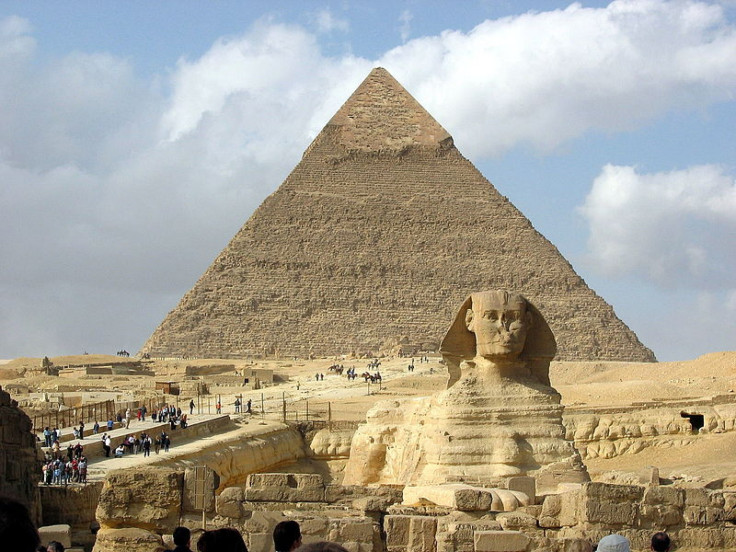As Pyramid Of Chefren Reopens, Egypt Asks Tourists To Return

When your country relies heavily on tourism and you lose more than a third of your visitors due to a political revolution, you’ve got to do something pretty dramatic to get them back. And if you’re Egypt, you reopen a pyramid.
On Thursday, Antiquities Minister Muhammad Ibrahim unveiled the revamped Pyramid of Chefren, along with six ancient tombs at Giza, that will reopen after a multi-year restoration project. Ibrahim said several other archeological sites are also slated to open across Egypt in the coming months.
The 446-foot (136m) Pyramid of Chefren, also known as the Pyramid of Khafre, was built around 2520 B.C. as the tomb for its namesake Pharaoh. It’s noted for its distinctive limestone cap, and it is Giza’s second-largest pyramid after the Great Pyramid, built by Chefren’s father, Cheops.
The tombs that opened Thursday belonged to high-ranking state officials and relatives of the royal family. Restoration included a ventilation system, newly paved walkways and lighting to illuminate the wall paintings and hieroglyphs.
The Arab Spring had a devastating effect on Egypt’s vital tourism industry, and Thursday’s event was meant, in part, to invite visitors back to the nation’s most famous archeological site. Tourism, which once accounted for 11.3 percent of GDP, plummeted by more than a third last year, and with sluggish reforms, continued protests and violent kidnappings in the Sinai Peninsula, 2012 hasn’t been much better.
Speaking in Giza Thursday, Ibrahim lamented that many Westerners still liken Egypt to a war zone. He said he hoped to get the message across that Egypt is a safe country for tourists.
The ousting of President Hosni Mubarak -- with scenes of rioting and reports of female journalists being sexually assaulted by mobs in Tahrir Square -- effectively took Egypt off the tourist trail for almost two years.
Visitors are only just beginning to return, though sporadic protests like the recent attack on the U.S. Embassy in Cairo and unrest in the Sinai Peninsula have done little to dissuade Westerners from believing that the country remains volatile.
© Copyright IBTimes 2025. All rights reserved.






















